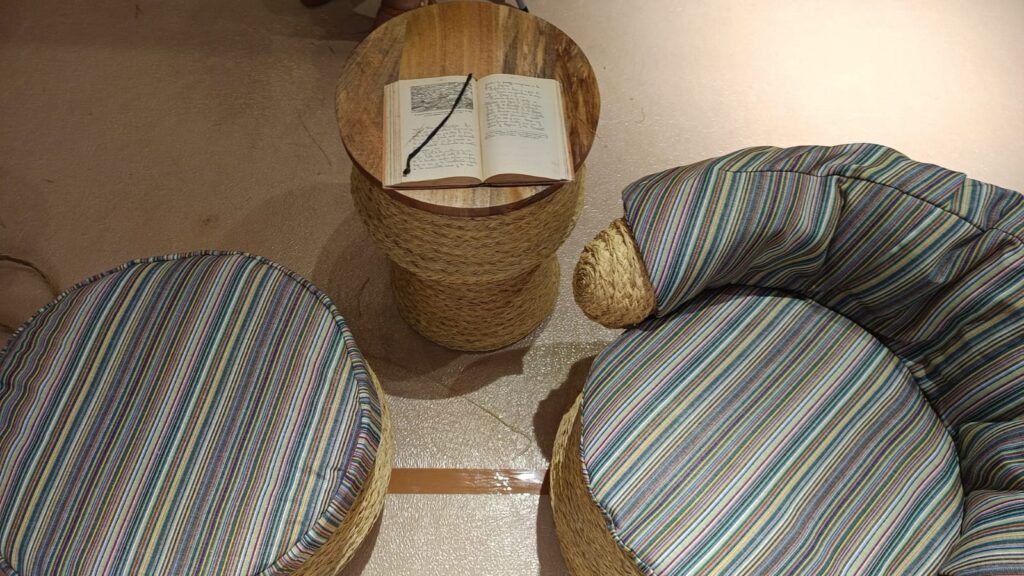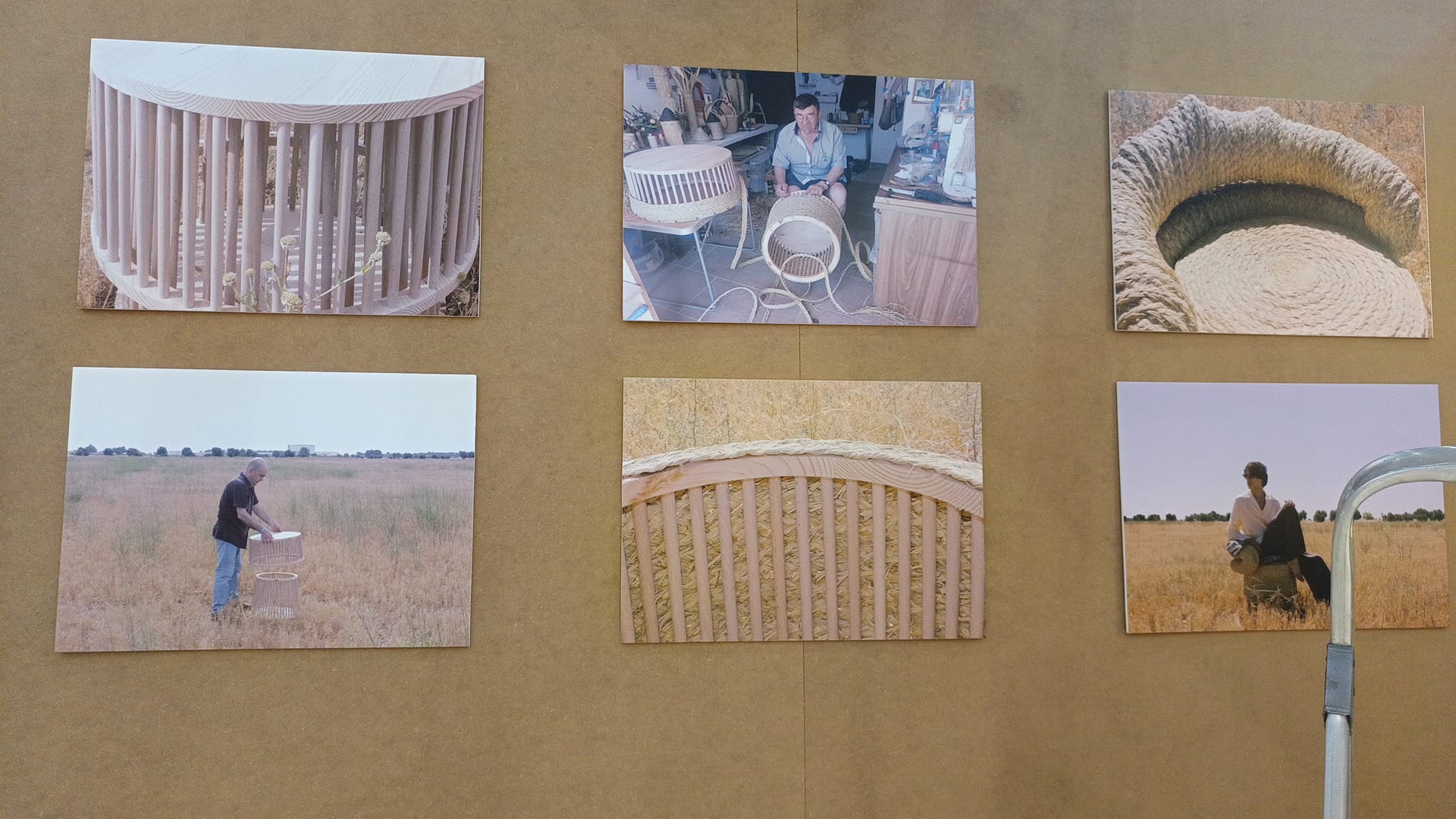Tradition and design for a sustainable future. A furniture project that reinterprets the traditional serijo and highlights the value of cultural heritage and artisan tradition
The proposal that the Higher Technical School of Aerospace Engineering and Industrial Design (ETSIADI) is presenting at NUDE 2025 at Feria Hàbitat Valencia is based on a furniture project that reinterprets traditional serijo and highlights cultural heritage and artisanal traditions.
In response to the growing loss of cultural identity in rural areas due to the worrying depopulation of these areas, Hilva was born, a design project that recovers and reinterprets the serijo -also known as posón-: a cylindrical seat made of esparto grass or anea traditional of the southern Spanish Meseta. Thus, this proposal aims to preserve the cultural tradition from a renewed point of view, combining design, craftsmanship and sustainability.
Hilva was born from a personal reflection on depopulation, the abandonment of artisan trades and the oblivion of the heritage that has been part of our history. The project seeks to resignify these elements, adapting them to new contexts of use to revalue them without losing their essence.
The collection presented, made by the student Lucía Leo Rodríguez and tutored by the professor Begoña Sáiz Mauleón, consists of two pieces: Florencio, an ergonomic seat that maintains the cylindrical shape of the serijo, and Pilar, a side table designed to accompany it. Florencio is available in two versions: with backrest (which allows for the attachment of an interchangeable cushion made of traditional Manchego fabric with recycled filling) and backless, in homage to the original typology. Its hollow interior allows the cushions to be stored, reinforcing its functionality and sustainability.
The esparto grass, the central material of the project, is hand-braided by local artisans. In this way, Hilva not only preserves an object, but also creates an alliance with local crafts, generating new economic opportunities in rural areas at risk of depopulation.
In addition to the product, the project includes a visual identity and brand strategy designed to bring this proposal closer to a current public, reinforcing its commercialization without losing the link with the territory.
Hilva is a bridge between memory and the present. A way to recognize the value of what we were in order to imagine what we can be.

